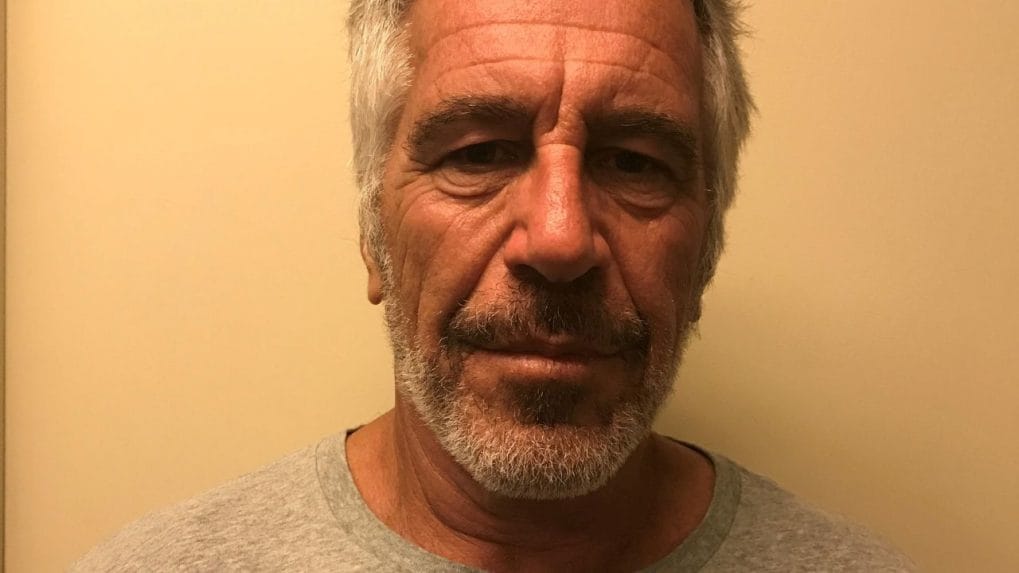The public gained access to the fourth round of documents related to Jeffrey Epstein, the infamous financier and sex offender, on Monday, January 8. Epstein killed himself in prison before facing federal sex-trafficking charges in 2019. These documents are part of a 2015 civil lawsuit filed by Virginia Roberts Giuffre against Ghislaine Maxwell, Epstein’s former girlfriend, who was later convicted of sex trafficking in December 2021.
Sex tapes, prominent names, and allegations against Donald Trump
In the recently disclosed legal documents, a victim of Epstein, Sarah Ransome, claimed that former US president Donald Trump was frequently involved in “sexual relations” with one of her acquaintances at Epstein’s New York residence.
Ransome, in a set of emails from 2016, further asserted that she possessed recordings featuring Epstein’s high-profile associates, including Trump, another former US president Bill Clinton, Prince Andrew, and British tycoon Richard Branson, engaging in sexual activities with an unidentified woman.
However, despite the misleading term ‘list,’ the documents encompass various facets of the case, not just a client list. The documents did not unveil a roster of potential Epstein clients or co-conspirators, as erroneously depicted on social media.
The documents do mention around 150 of Epstein’s associates, shedding light on the inner workings of Epstein’s social circles and the extent of his abuse.
More names…
The media frenzy surrounding the unsealed documents has given rise to numerous conspiracy theories and prompted scrutiny of Epstein’s associates, including prominent figures like Michael Jackson, Alan Dershowitz, magician David Copperfield, a former governor Bill Richardson, and former senator George Mitchell.
 Demonstrators hold signs aloft protesting Jeffrey Epstein. (Image: Reuters)
Demonstrators hold signs aloft protesting Jeffrey Epstein. (Image: Reuters)While some individuals face allegations of sexual misconduct, the documents do not necessarily implicate everyone mentioned. For instance, Clinton and Trump are referenced, but the details do not point to any wrongdoing.
Hidden Horrors: Epstein’s coercion of minors into sexual acts
Earlier, in response to a request from Miami Herald, and arguing that much of the information was already public, Judge Loretta Preska, presiding over the Maxwell case, granted the unsealing of documents related to a defamation case against Ghislaine Maxwell.
The documents provide narratives on how Maxwell and others in Epstein’s employ recruited young girls and women to work at the sex offender’s properties, detailing instances of coerced sex acts, often disguised as massages or participation in lingerie modelling jobs.
Accounts provided to Florida law enforcement during their mid-2000s investigation into Epstein include interviews with numerous individuals, many of them minors, who were coerced into engaging in sexual acts.
Their statements to the police describe situations where massages intended for Epstein turned unexpectedly sexual, with some individuals claiming they were incentivised with money to recruit others.
 A protester holds up signs outside the courthouse (Image: Reuters)
A protester holds up signs outside the courthouse (Image: Reuters)The collective testimony outlines a disturbing pattern of sexual abuse involving Epstein masturbating and sexually assaulting individuals during massages, sometimes accompanied by verbal threats to conceal the abuse.
In one of the documents, a list of keywords used in searching Maxwell’s electronic devices for evidence was revealed. This list included names such as ‘Clinton’ and ‘Andrew,’ along with terms like ‘schoolgirl’ and ‘gerbil.’
Epstein’s death by suicide in prison while awaiting trial added complexity to the case.
Conspiracy theories and real-world consequences
Conspiracy theories surrounding his death, connections to powerful figures, and unfounded claims about political enemies persist.
Despite the numerous accusations outlined in the investigations, Epstein did not face all the potential charges. The documents shed light on this, offering a firsthand perspective.
In 2007, a non-prosecution agreement was reached, outlining a deal that would see Epstein serving jail time while the US District Attorney’s office for Florida suspended its case against him.
The highly polarised political environment, particularly in the context of the 2024 election, raises concerns about the potential for misinformation and its real-world consequences.
The conspiracy theories surrounding the Epstein case have extended beyond those directly involved, leading to unexpected entanglements.
During a Tuesday (January 9) appearance on ESPN, football player Aaron Rodgers hinted that Jimmy Kimmel might be implicated in the documents. This reference by Rodgers followed a previous jest from Kimmel, who had labeled Rodgers a “tin-foil hatter” for contributing to speculation about the Epstein list.
Kimmel swiftly responded, asserting that Rodgers’s comments had serious consequences.
Dear Aasshole: for the record, I’ve not met, flown with, visited, or had any contact whatsoever with Epstein, nor will you find my name on any “list” other than the clearly-phony nonsense that soft-brained wackos like yourself can’t seem to distinguish from reality. Your reckless… https://t.co/p8eug12uiS
— Jimmy Kimmel (@jimmykimmel) January 2, 2024
In a social media statement, Kimmel accused Rodgers of uttering reckless words that jeopardised the safety of his family.
“Your reckless words put my family in danger.”
Historical precedent: Pizzagate
Past incidents, like ‘Pizzagate’ in 2016, underscore the dangers of unfounded conspiracy theories leading to harassment and violence.
Pizzagate refers to a debunked conspiracy theory that gained traction during the 2016 United States presidential election. The theory falsely claimed that high-ranking Democrats, particularly those associated with Hillary Clinton’s campaign, were involved in a child sex-trafficking ring operating out of the basement of a pizzeria in Washington, D.C., called Comet Ping Pong.
This theory originated from misinterpretations of hacked Democratic Party emails and spread rapidly on social media and various online forums. The theory led to real-world consequences. Internet trolls and believers harassed and targeted the pizzeria and its employees.
In December 2016, an individual motivated by the false claims entered Comet Ping Pong with a firearm to ‘investigate’ the allegations. Fortunately, no one was harmed during the incident, but it highlighted the potential dangers of unfounded conspiracy theories, and is often cited as an example of how misinformation can have serious consequences, leading to real-world harassment, violence, and threats.
(Edited by : Shoma Bhattacharjee)

Ananya Das is your guide to the latest trends, viral sensations, and internet phenomena. Based on a keen understanding of digital culture, Sophie navigates the ever-evolving landscape of trending topics. With an insightful and engaging approach, she explores what’s buzzing across social media platforms, ensuring readers stay in the loop with the most talked-about and shareable content online.


